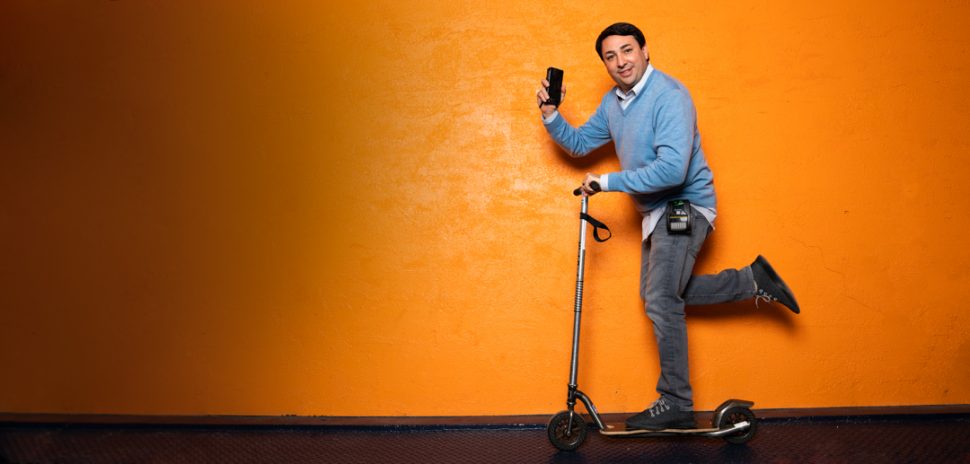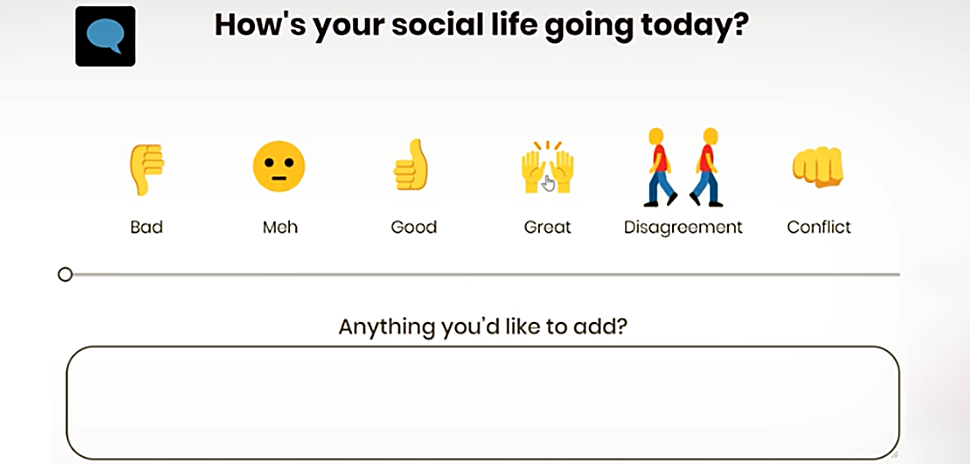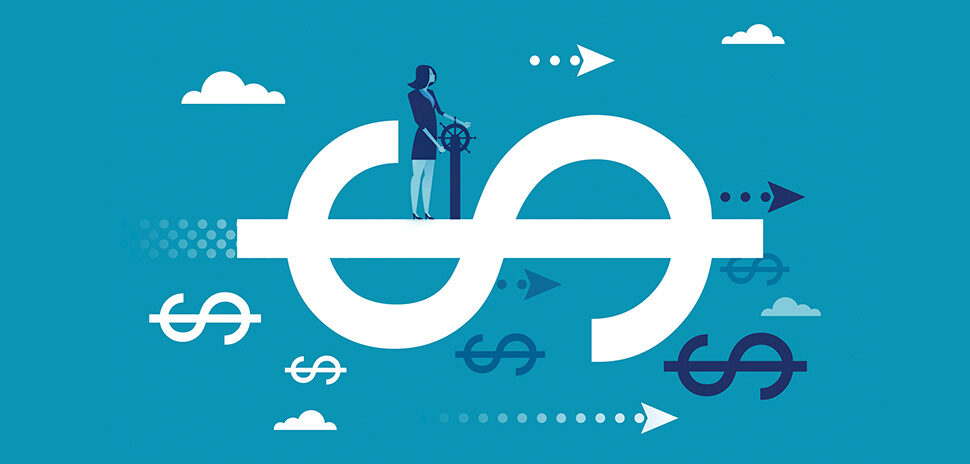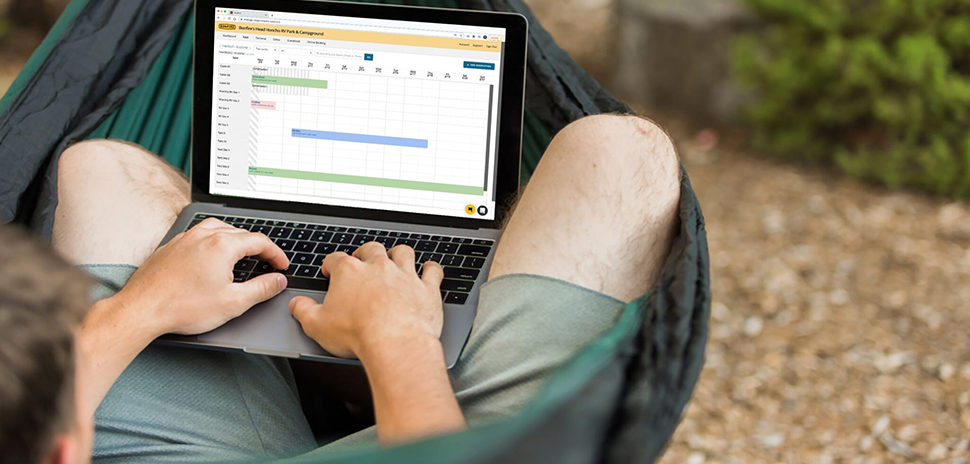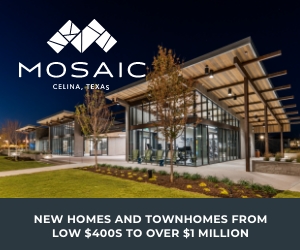![]() ParkHub continues to attract investment and clients, building itself into a powerhouse in the parking industry with clients like the Super Bowl and AT&T Stadium.
ParkHub continues to attract investment and clients, building itself into a powerhouse in the parking industry with clients like the Super Bowl and AT&T Stadium.
This year, the Dallas-based B2B parking tech provider announced that it had completed its $13 million Series B funding round and acquired the business of a competitor. From attracting the attention of Dallas Cowboys owner Jerry Jones to working with major customers like American Airlines Center, you could say ParkHub’s been busy since founding back in 2010.
We spoke with founder and CEO George Baker to talk about founding ParkHub, what 2019 looks like for the startup, and what he thinks is going to be the next ‘big thing.’
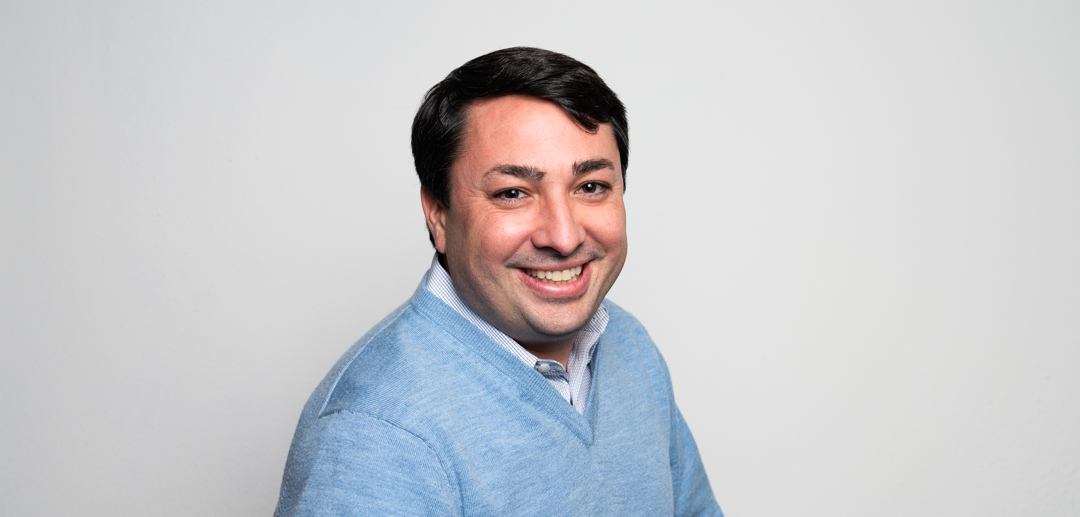
[Photo: Rebeca Posadas-Nava]
What was your inspiration in founding ParkHub?
Throughout the 20+ years I have spent in the parking industry, I’ve witnessed many challenges both operators and consumers face in the process of parking. The industry historically relied on after-action reporting in cumbersome audit trails, where vehicle counts or physical tickets become a calculation for revenue. Loss was not only prevalent but normalized. Consumers struggled to find parking, and were often turned off by an inflexible rates or the inability to pay for parking with anything but cash. The industry was ripe for disruption—and I was driven to streamline and digitalize parking and optimize consumers’ journeys through technology.
What was easier about your launch in 2010 than you anticipated, and, conversely, what was more difficult?
When I launched ParkHub then, the technology was originally designed as a consumer-facing parking reservation application. I was able to prove the viability of moving the transaction onsite, an afterthought; to in advance—know before you go because of the high-demand for sports and entertainment parking in Dallas at that time.
If you recall from 2010-2014, Dallas hosted back-to-back World Series with the Texas Rangers, NBA championship with the Dallas Mavericks, Jerry Jones opened up the “modern day coliseum” in Arlington [AT&T Stadium], which hosted many high-profile events such as concerts, the NBA All-Star game, boxing and, of course, the Super Bowl. I was able to leverage these demands and team up with ticket brokers and offer parking as a bundle. As advance sales became popular, I saw an opportunity to stay ahead of the curve and pivot to a B2B-based model ParkHub is today by partnering with Ticketmaster in 2014 to provide the advance sale, and I became the authenticating hardware for them in parking.
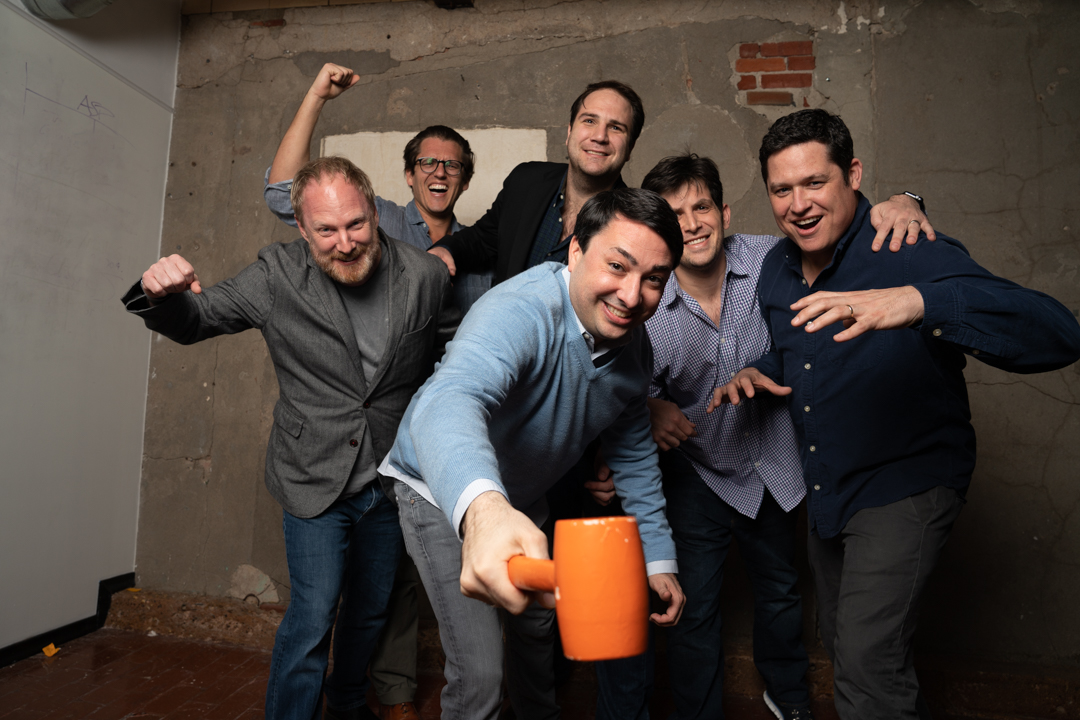
From left to right: Todd Marshall (CTO), Geoffrey Byers (CXO), George Baker (CEO), Conner Mowles (CFO), Nick Schanbaum (General Counsel and Chief of Staff), and Jake Edsell (COO). [Photo: Rebeca Posadas-Nava]
How did you identify the members of ParkHub’s workforce that have helped you move forward so successfully? Was there a specific type of person you were looking for to build your team?
One of the first things I did in the early days of ParkHub was identify core values. They helped me pin down what sort of culture I wanted to create and what sort of people would thrive in that environment.
“Clear, respectful, and honest communication,” “Exceeding expectations of customers and colleagues,” “No one is above any job”—all of these examples speak to qualities I sought when building my team and that the team embodies collectively.
How have you divided up management responsibilities for ParkHub?
ParkHub’s leadership team is composed of myself and the departmental heads—technology, product, operations, strategy, sales, and finance. Each leader keeps a pulse on their team and the leadership team meets weekly to resolve issues that come out of those departmental syncs. This process of escalating issues up the chain until they are solved means every team member is heard and remains equipped to manage their role and responsibilities—whether we are a company of five or 500.
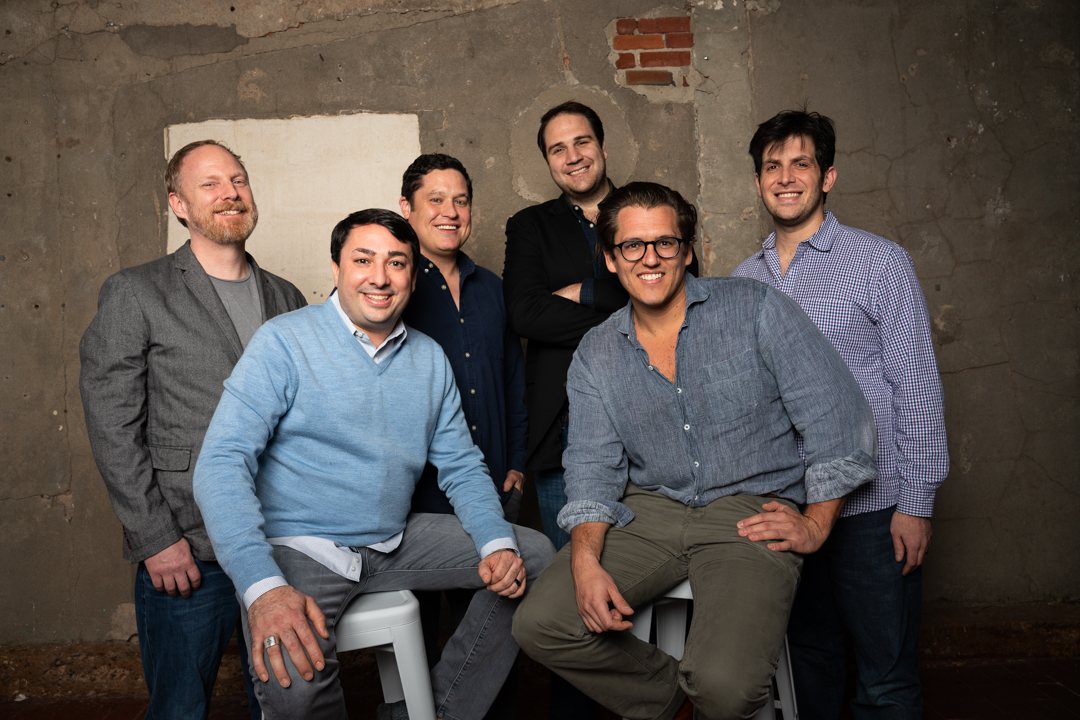
Pictured from left to right, ParkHub senior management: Todd Marshall (CTO), George Baker (CEO), Jake Edsell (COO), Conner Mowles (CFO), Geoffrey Byers (CXO), and Nick Schanbaum (General Counsel and Chief of Staff). [Photo: Rebeca Posadas-Nava]
What was your plan to identify potential investors when you launched, and have you had to adapt that plan as ParkHub has matured?
Being a Park Cities native and now growing my own family in Highland Park, I have been fortunate to have built upon my family’s strong relationships within the Dallas community for over 45 years and leverage this network. These relationship had strong ties to real estate, oil and gas, and sport & entertainment, and clearly grasped the product market need while also having access within their networks for distribution of sales. As we grew from proof of concept, to minimum viable product and established a product market fit with a scalable business model, our needs changed. As such, I went from a large network of high-net-worth individuals to an institution fund with relevant experience in B2B SaaS growth equity from Santa Monica, being Arrowroot Capital.
How has ParkHub’s success exceeded your expectations and what do you see as its biggest impact in the parking/mobility space?
As a company, we are committed to exceeding expectations. That said, the growth we experienced over the past year has been nothing short of remarkable and humbling. We more than doubled our client base, delved into new verticals and use cases for our technology, acquired the mPOS division of SpotHero—effectively turning a competitor into a partner, and secured the first institutional round of financing.
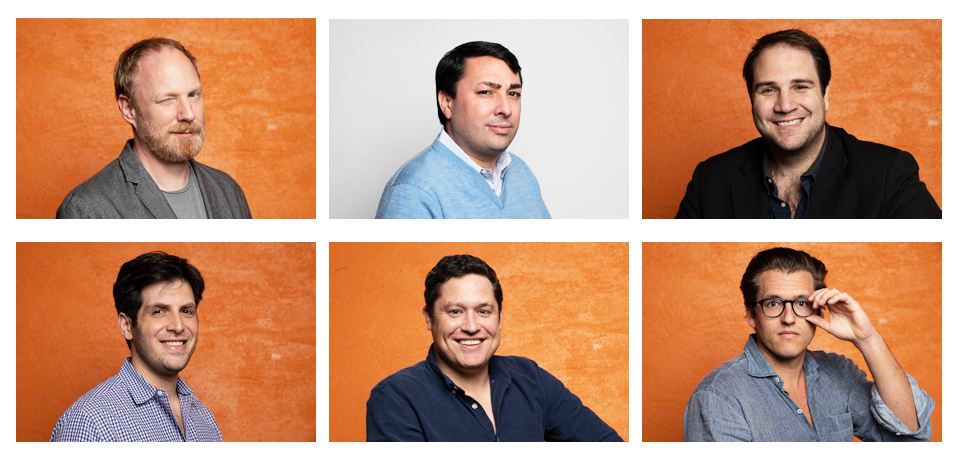
The team behind ParkHub’s success. Not pictured is Tony Albanese, CSO. [Photo: Rebeca Posadas-Nava]
More and more, parking is becoming synonymous with mobility, while parking space is increasingly valued as real estate. ParkHub’s impact will continue to be realized as we continue to streamline the parking experience, digitalize parking assets, and serve up real-time data to consumers, businesses, and cities. The insights will open up opportunities to understand traffic, ease transportation, better utilize space, and improve the quality of life.
READ NEXT Follow the Money: ParkHub Buys Competitor, Closes $13M Series B Round; Kibo Makes Acquisition
What’s the next ‘big thing’ for ParkHub?
Two notable products that will revolutionize parking is:
- Our IoT sensor, Pulse, which is capable of understanding vehicle detection: speed, length, and direction.
- Our Parking Data As A Service (DaaS), ParkHub.io, which will feed applications, mapping engines, and reservation engines with Parking Location, Availability, and Pricing—similar to Sabre with airlines seats, hotel rooms, and rental car availability.
These products will offer tremendously valuable utilization data to a range of new and existing verticals—from real estate to hospitality to the venues and parking operators we are already partnering with and more.
How will new technologies affect ParkHub?
ParkHub will grow into opportunities alongside the emerging technologies that are starting to build connected landscapes that thrive on real-time data and automation. The idea that you cannot manage what you cannot measure, is all so true here. As we create these digital transcripts for these assets AND the transactions move from onsite to digital. We can apply AI and ML [machine learning] for prescriptive operational enhancements around pricing and creation of future transit hubs for other modalities of transportation—authenticating access appropriately while circulating payment accordingly.
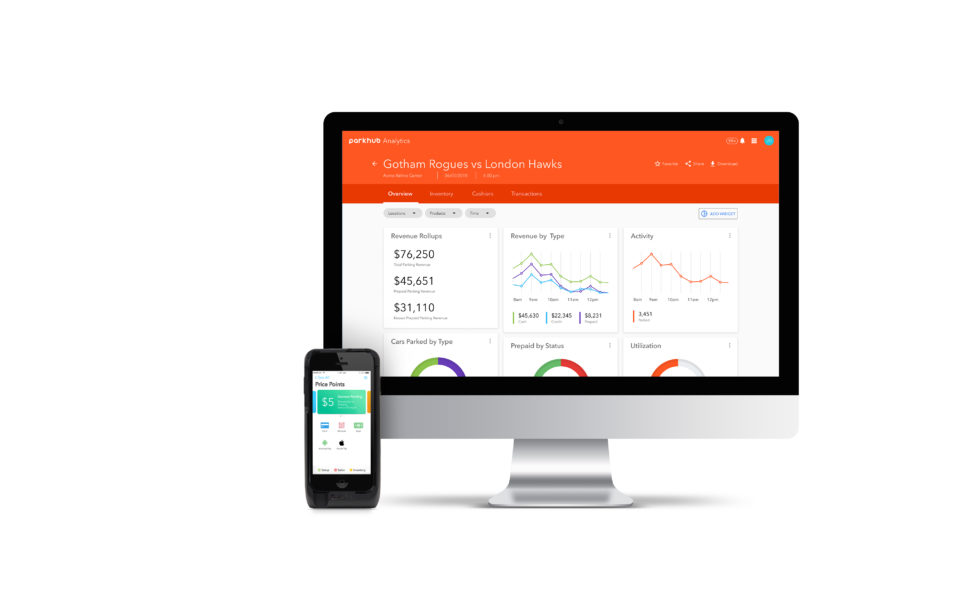
[Photo: Courtesy ParkHub]
As an entrepreneur, what advice to you give others about the process of starting your own business?
Fail fast, pivot quickly. Success is not final, failure is not fatal; it is the courage to continue that counts most. Be resilient.
What is the biggest surprise you’ve discovered along your entrepreneurial path?
When inventing and creating a product offering and associated business mode there is no right way, there is just a way. Basic principles for this can be taught, but ultimately your market (customers) will tell you the viability and value. You must listen and react appropriately. Now see above: “Fail fast, pivot quickly. Success is not final, failure is not fatal; it is the courage to continue that counts most. Be resilient.”
![]()
Get on the list.
Dallas Innovates, every day.
Sign up to keep your eye on what’s new and next in Dallas-Fort Worth, every day.

